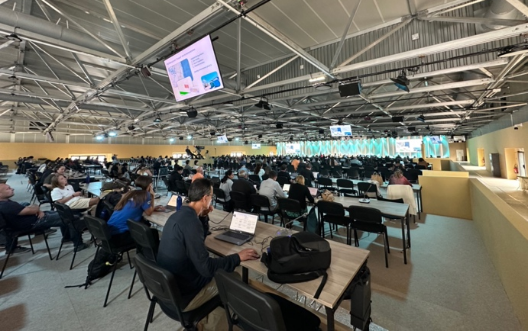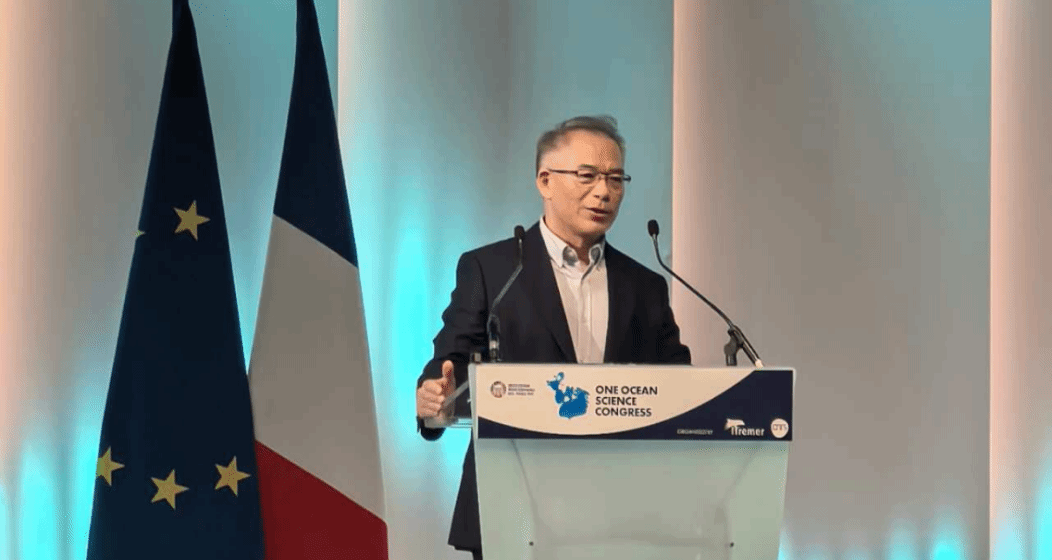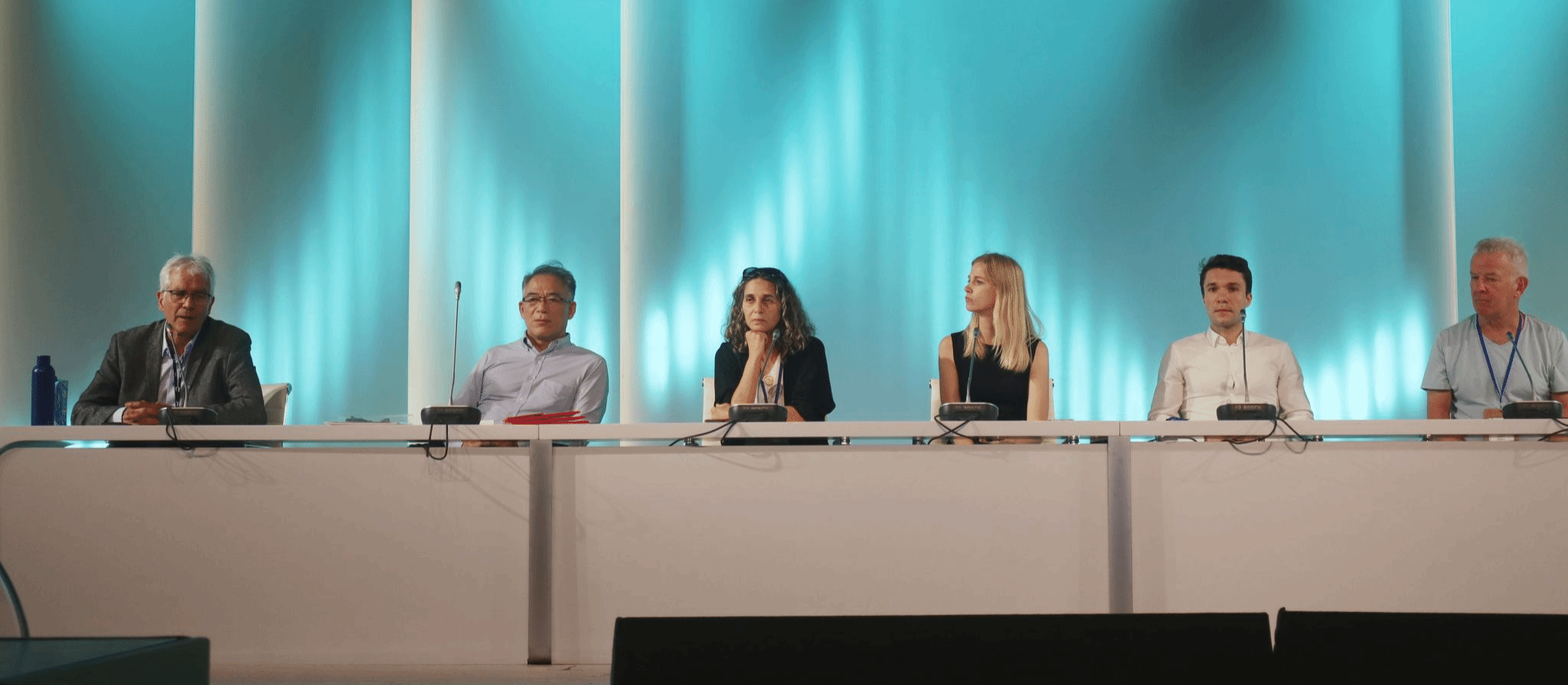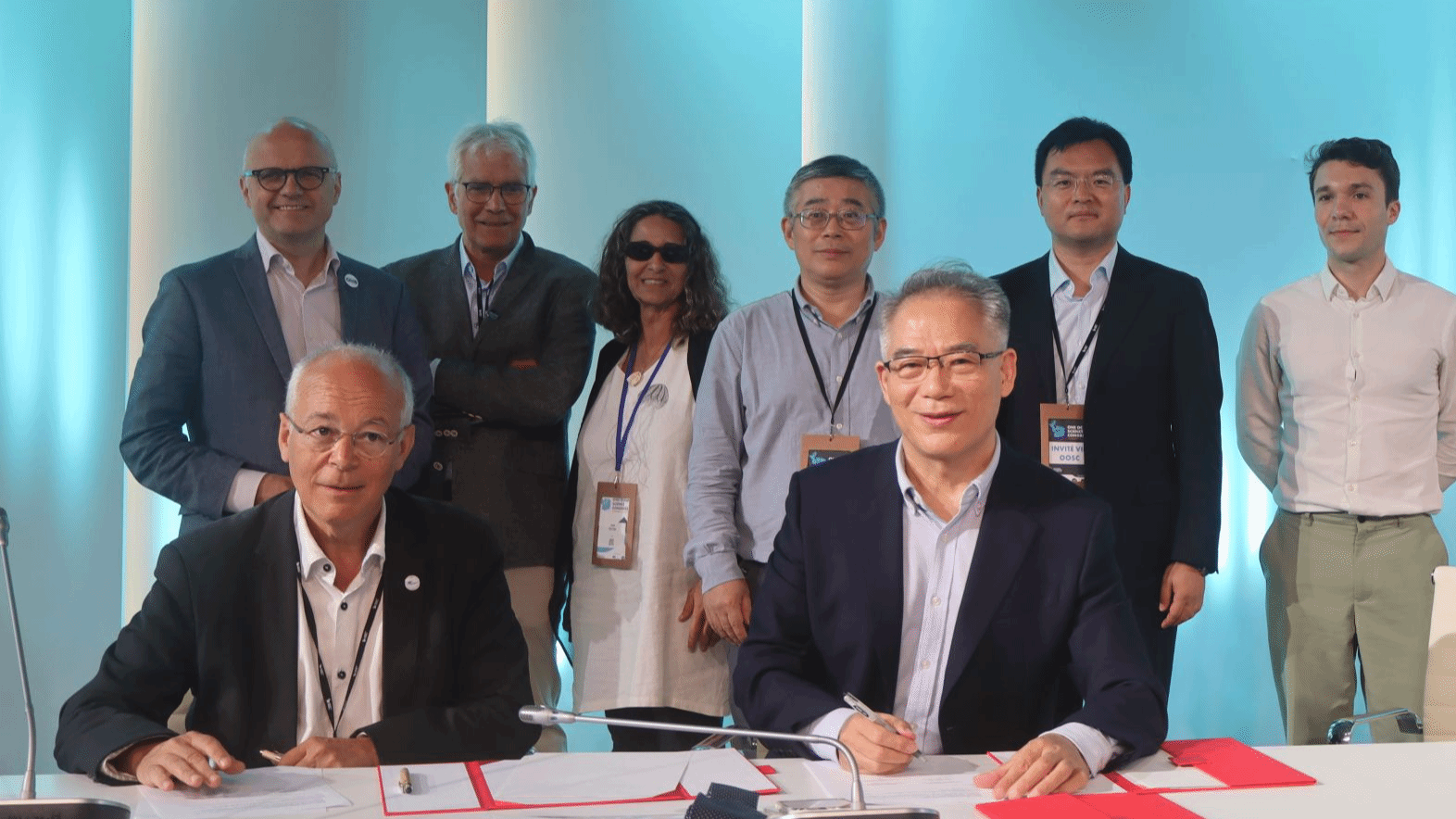Nice, France – June 4, 2025 – During the One Ocean Science Congress (OOSC), Global ONCE convened a Town Hall meeting titled " Enhanced Carbon Dioxide Removal Through Ocean Negative Carbon Emission Approaches". The event brought together nearly a thousand experts, scholars, representatives from international organizations, and stakeholders from around the globe. Participants engaged in in-depth discussions on the scientific value, implementation pathways, and governance challenges of marine Carbon Dioxide Removal (mCDR) technologies.


Global Experts Focus on CDR's Strategic Value
Co-chaired by Chuanlun Zhang, Stephen Giovannoni, and Eliza Northrop, the meeting featured key insights. Prof. Jean-Pierre Gattuso employed a "swimming pool" model to illustrate the critical role of CDR technologies. He emphasized that, due to the insufficiency of current mitigation efforts, accelerated carbon removal through artificial technologies will be essential to meeting the Paris Agreement’s target of limiting global warming to 2.0 °C. Prof. Philip Boyd stressed that relying solely on terrestrial CDR would compromise climate governance efficiency, underscoring the urgent need to unlock the "blue frontier" potential of marine carbon sinks. Linda Hanson, Representative of the International Atomic Energy Agency (IAEA), showcased scalable implementation models integrated with coastal industrial facilities, using the Canary Islands pilot site as an example. Prof. Adina Paytan presented an "Opportunity-Risk-Ethics" governance framework, advocating for global coordination mechanisms to mitigate potential ecological and ethical risks in governance.

Chief Scientist Proposes Negative Emission Technology Framework
Academician Jiao Nianzhi provided a comprehensive overview of the innovation pathway for ocean-based negative emissions technologies led by Global ONCE, and proposed a scientifically and practically feasible solution:
1. Integrating the core concept of 'Triple REAL' throughout the entire chain of technology development, deployment, and regulation. Under this framework, a comprehensive carbon sequestration demonstration project is being advanced, integrating four major ocean carbon pumps: the Biological Carbon Pump (BCP), Microbial Carbon Pump (MCP), Carbonate Counter Pump (CCP), and Solubility Carbon Pump (SCP). For example, artificial upwelling technologies are used to bring nutrient-rich deep water into the euphotic zone, which both enhances algal carbon sequestration and alleviates hypoxia and acidification, achieving environmental co-benefits.
2. Promotes ecologically safe technological innovation, such as: using hydroxyl radical (•OH)-based algal control techniques to precisely disrupt algal cell DNA, enabling non-toxic carbon sedimentation while avoiding the endotoxin release risks associated with conventional methods; Enhancing carbon sequestration by introducing olivine minerals to promote carbonate precipitation (CCP+), which not only increases storage efficiency but also mitigates ocean acidification — yielding a dual benefit of 'carbon capture and acid reduction'.
3. Promotes standardization and international collaboration. Prof. Jiao proposed the 'SMART' principle — Specific, Manageable, Achievable, Realistic, and Transparent — to guide practical implementation. He pointed out that the ISO has approved the establishment of a dedicated working group on 'Negative Emissions and Carbon Neutrality', a move that will help lay the groundwork for the development of international standards and the global rollout of these technologies."

Building Consensus to Accelerate CDR Deployment
During the panel discussion, scholars noted that marine CDR technologies are largely still in early stages of development, requiring small-to-medium scale field experiments to verify ecological safety (e.g., using ¹⁴C labeling to quantify MCP efficiency). Vidar Helgesen, Executive Secretary of the IOC-UNESCO, called for leveraging the "Ocean Decade" to build open databases and foster multinational collaboration.

At the event, the French Research Institute for Exploitation of the Sea (IFREMER) and Global ONCE signed a Memorandum of Understanding (MoU) to jointly advance the implementation of demonstration projects, providing a practical model for responsible innovation in ocean-based negative emissions technologies.

This Town Hall meeting marked Global ONCE’s continued leadership in the integrated 'Science–Policy–Action' framework. Academician Jiao Nianzhi’s proposal of the 'Triple REAL' framework, together with the engineered transformation of natural carbon pump mechanisms, provided a systematic articulation of Global ONCE’s innovation pathway for ocean-based negative emissions technologies. As international collaboration deepens, the enhancement of global ocean negative emissions capacity will inject fresh momentum into achieving the United Nations Sustainable Development Goals.